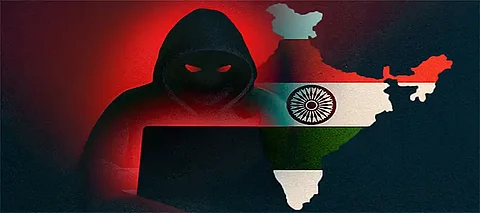

India-Pakistan hostilities have also entered the digital arena, as there have been reports of cyberattacks attributed to Pakistani-based hackers. With growing tensions between India and Pakistan, Indian citizens, businesses, and particularly critical segments such as banks and finance sectors are being more targeted by internet threats like phishing, malware, and data compromises. Following the alert from CERT-In, a warning has also been issued by the Bombay Stock Exchange (BSE), seeking market participants to remain vigilant and cautious.
Officials claim that Pakistan-based hackers are making use of communication platforms such as WhatsApp, email, Facebook, and Telegram in order to distribute malware targeting sensitive data and monetary information. In addition, Indian banks have intensified their cybersecurity environments and bolstered security at those branches located around border areas in anticipation of expected retaliatory responses.
All these incidents, like cyberattacks on Indian defense websites, illustrate very aptly the rising specter of security threats in this nation. One such virus, 'Dance of the Hillary,' is the new threat to be propagated over video files or documents. With this intensification of electronic warfare, here are five imperative things you must do to safeguard yourself and your enterprise from these novel advanced threats.
Create strong, unique passwords:
Be careful with your passwords since they must be strong enough to repel attempts at unauthorized access. Do not use easily accessible personal details, and incorporate letters, numbers, and symbols in your password. Do note not to use one password on many sites. Depending on the services of a password manager is highly recommended.
Enable two-factor authentication (2FA):
Additionally, ensure account security by activating two-factor authentication (2FA). Even if your attacker knows your password, they would not be able to access it without a code being sent to your mobile or email.
Instill regular checks:
Try to regularly check and install your applications, phone, computer, and antivirus programs. They all possess vulnerabilities in their settings that can be targeted by cyber crooks.
Be careful of clicks.
Any message or email that appears unusual should be treated with suspicion—don't click links or download attachments. To facilitate easy financial and information thievery, spoofed messages are used by hackers.
Cloud infrastructure and portable drives are an ideal place to keep individual and sensitive data that need privacy. Ensure to back them up occasionally.
You will not lose your information even if your device is hacked or even ceases to work.